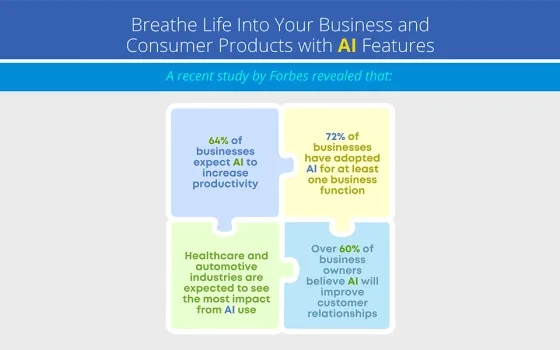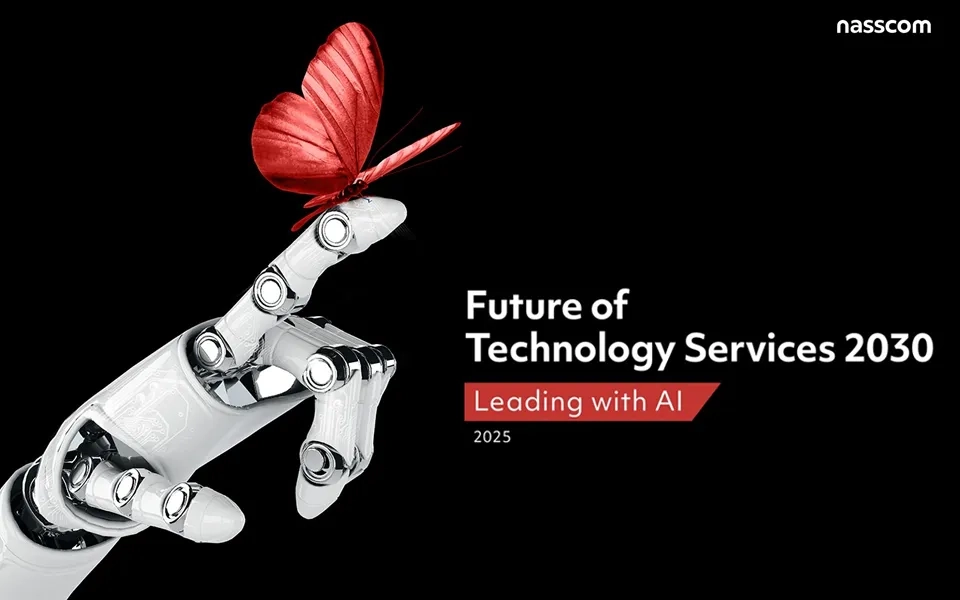In today's digital landscape, personalized marketing is a game-changer for businesses exploring ways to connect with their target market. With the rise of AI and data analytics, businesses have a powerful tool to drive personalization strategies and revolutionize customer engagement. AI is playing a pivotal role in personalized marketing strategies and transforming the way businesses interact with their audience.
-
Data dominance: Accurate personalization requires significant and high-quality data generated from AI-driven insights.
-
Personalization: AI and data analytics allow micro-segmentation to provide hyper-personalized experiences.
-
Privacy is paramount: It is vital for brands to balance their personalization efforts with regard to their customer data privacy.
The more data is used, the better insights businesses can generate. When coupled together, AI and data analytics enable brands to aggregate data to improve the customer experience and enhance customer loyalty. Brands are using artificial intelligence (AI) and data analytics to design compelling and personalized experiences to enhance customer relationships. This is further paving the way for real-time personalization that was once deemed unobtainable.
With AI and data analytics, businesses are driving personalization strategies, improving the customer experience, and enhancing customer loyalty. AI is assisting in achieving this process through machine learning algorithms to determine the latest trends and forecast outcomes. Data analytics solutions are assisting businesses to parse through the sea of information and discover a deeper understanding of customer tendencies and behaviors. By leveraging advanced data handling solutions and dynamic content generation, AI and data analytics are redefining personalization.
Read more: Unleashing Innovation: Crafting Customer-Centric Strategy for Business Transformation
Personalized Considerations with AI and Analytics
Personalized experiences have a transformative impact on employee engagement, productivity, and overall success. In fact, a recent report predicted that almost 55% of organizations identify hyper-personalization as the most impactful priority for internal communication. However, for many businesses, there is a serious gap in understanding how to achieve successful personalization.
Personalization goes beyond addressing the target base by their first name. It involves research to determine audience personas, understand them on a deeper level, and tailor messages to address their specific requirements. Based on the user's content consumption and engagement, marketing professionals can gain insightful recommendations and communication options. AI helps enhance personalization by optimizing campaigns, recommending content, and improving engagement. It also provides insights into the themes that are most communicated and received, allowing businesses to revamp messaging strategies and allocate resources to dynamically refine and format content for greater impact.
With the convergence of AI and data analytics, it has become easier for businesses to develop and implement audience personas, enabling business leaders to tailor messages, capture employee preferences, and create seamless experiences.
Marketing professionals are leveraging AI-based campaigns to include personalized banner ads that can compel customers to take specific action. With the increase in the amount of data collected by AI, promotional campaigns can be dynamically personalized. AI can be used to properly determine the amount of personalized content while also:
-
Using multiple tags or metadata to identify the interested audience groups
-
Introducing dynamic fields in the content
-
Using automated and AI-based recommending engines and machine learning processes
Read more: How to Choose the Right Data Solutions Provider for Your Business: A Guided Approach
While it's essential to understand the impacts of content personalization, other factors help in creating an effective personalization strategy, like localization and linguistic considerations. Recognizing and accommodating language preferences is essential for localization and effective personalization. AI-powered language translation solutions help automatically translate content into different languages.
Linguistic considerations help convey a message of empathy, thus demonstrating that the organization values unique identities. However, organizations must invest in understanding the intricacies of different languages and cultures in order to ensure that their messages are not only accurate but culturally appropriate.
By leveraging AI and data analytics, organizations can gain insights into their customer usage patterns and identify the optimal time to determine which channels are most effective for different target groups. By optimizing communication strategies with tailored content delivery, businesses can gather real-time feedback to cater to their specific needs and preferences.
The Growing Potential of Generative AI for Personalization
Generative AI is assisting businesses and marketing professionals to amplify their capabilities, enabling them to personalize messages at scale, adapt to audience preferences, and tailor communications to individual channels. AI-powered algorithms can scan through vast amounts of data and extract key insights for the creation of hyper-personalized content. However, businesses must remain cognizant of the importance of human oversight and ethical considerations.
Generative AI is a powerful tool that requires direction to ensure that the message aligns with the organization's values, ethics, and objectives, as well as strike a harmonious balance between automation and human curation.
With business leaders understanding the transformative power of personalization in cultivating meaningful connections and fostering a thriving workforce, they are developing a future where personalized experiences will become the norm, and AI and data analytics will empower employees, propelling the organization to unparalleled heights of success.
Ethical Considerations and Challenges
While AI and data analytics are transforming the realm of personalization for marketing professionals and business leaders, there are some underlying challenges and ethical considerations.
Privacy is an important concern. With the amount of data being gathered, brands need to ensure that they comply with data security regulations and maintain data transparency with their customers. Additionally, inherent biases in data can direct AI algorithms to make biased decisions, especially in sensitive areas like healthcare and finance. There is also the risk of over-personalization, where customers can feel that the targeting is too invasive, thus creating a negative experience. This can also lead to consumers witnessing the unpleasant experience of feeling as though they are being followed from site to site.
There is a growing need for businesses to protect their customer's privacy as well as ensure company-wide data security practices. One way to safeguard sensitive customer data is to integrate a sound data governance framework in place. Given the wide circulation of data that is inevitable in ML & AI projects, businesses need to establish clear data ownership and accountability for consumer data collection at different stages of workflow.
Read more: The Future of Generative AI: How Will it Change the World
Final Thoughts on AI, Analytics, and Personalization
AI and data analytics in marketing are presenting a way to offer customers a digital and personalized experience. The content tailored to consumers' needs helps in delivering better segmentation and building transparent relationships with consumers. With the number of marketers and customers aware of the opportunities offered by AI growing, it is more critical than ever to understand how to use them effectively.
From customer segmentation to dynamic content generation, AI and data analytics are drastically impacting the concept of personalization and equipping brands with the necessary tools to create tailored experiences to enhance customer loyalty and drive revenue.



















